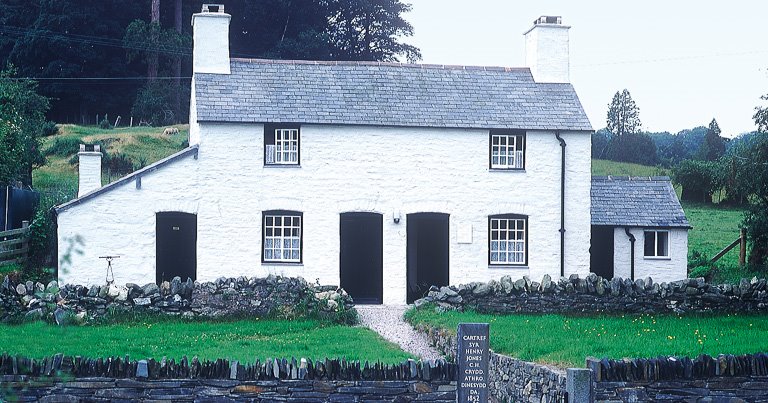 In a class on pastoral care yesterday, we read and discussed Gerard Manley Hopkins’ poem, “In the Valley of the Elwy.” Hopkins was a Jesuit priest in nineteenth-century England seized with a deep sense of missionary vocation, and, after his early death, regarded as an outstanding poet. Porter and Porter note that Hopkins later confessed that this poem was “not about the Elwy at all, but about the Watsons of Shooter’s Hill.”
In a class on pastoral care yesterday, we read and discussed Gerard Manley Hopkins’ poem, “In the Valley of the Elwy.” Hopkins was a Jesuit priest in nineteenth-century England seized with a deep sense of missionary vocation, and, after his early death, regarded as an outstanding poet. Porter and Porter note that Hopkins later confessed that this poem was “not about the Elwy at all, but about the Watsons of Shooter’s Hill.”
The linking of two separate things—a place he loved and a home that had been hospitable—gives the poem a universality that is intentional, rather than it being a record of a single unique time and place (Porter & Porter, ‘Over the Bent World’: Poems and Images from Gerard Manley Hopkins, 78).
I used the poem not so much to highlight Hopkins’ missionary concern, but to help us reflect on the ethos of pastoral care. The poem has the form of a classical sonnet, and so we used the first stanza to explore Hopkins’ experience as a way into thinking about what pastoral care might look like, and the second stanza to reflect on the fundamental impulse or ethos of pastoral care.
I remember a house where all were good
To me, God knows, deserving no such thing:
Comforting smell breathed at very entering,
Fetched fresh, as I suppose, off some sweet wood.
That cordial air made those kind people a hood
All over, as a bevy of eggs the mothering wing
Will, or mild nights the new morsels of Spring:
Why, it seemed of course; seemed of right it should.
Lovely the woods, waters, meadows, combes, vales,
All the air things wear that build this world of Wales;
Only the inmate does not correspond:
God, lover of souls, swaying considerate scales,
Complete thy creature dear O where it fails,
Being mighty a master, being a father and fond.
“I remember a house…” Here Hopkins experienced a welcoming hospitality, filled with warmth and nurturing shelter, a safe and comforting place where fragile new shoots might take root and grow, or new life burst forth under the ‘mothering wing.’ The good air of the place made as it were a ‘hood’ for the people under which he too could find a place, though in fact he recognised that he deserved none of their kindness.
The Welsh countryside, lovely in every respect, is the recipient of this same ‘air’ which, in fact, builds the world of Wales. Yet…
And here Hopkins slips in a different note: “Only the inmate does not correspond.” The class discussed whether the term ‘inmate’ should be read generally as inhabitant, or whether it might carry the sense it does today of one confined, perhaps imprisoned. We did not really reach a conclusion. Perhaps Hopkins was using it in a similar way as we do today with a hint that humanity generally is confined with sickness, imprisoned in all kinds of fears and vice. The class also discussed whether Hopkins was here referring to himself or to the people of Wales more generally. He lived in Wales for three years and was gripped with a concern for the spiritual well-being of the country he loved. Perhaps the more general sense is best.
The people of this ‘cordial air’ are somehow out of step with the beauty and goodness of the natural order, and of the One who is over all. And so in the final three verses Hopkins prays, to a God with ‘considerate scales,’ and pleads with this ‘lover of souls’ to “Complete thy creature dear – O where it fails.” It is a prayer for restoration, for rebuilding from this God who is not merely a mighty master, but a ‘father and fond.’ He prays that the father might with a mothering wing shelter and nurture these wayward souls, perhaps in hope that they too might be a world built in the beauty and goodness intended for them.
There is much to consider here with respect to pastoral care: the welcome and warmth, the nurturing shelter, the primacy of divine love with scales tipped toward considerateness, the place of prayer, the ideals of beauty and goodness, of corresponding to the creational order, and probably more besides. It is a beautiful poem celebrating the beauty of God and the beauty of his creation, and not least, the beauty of all the ‘souls’ – the real people needy and broken – that he loves.